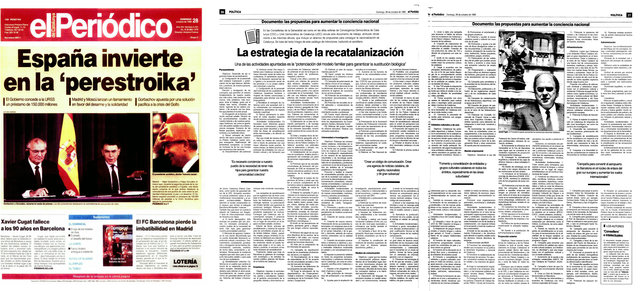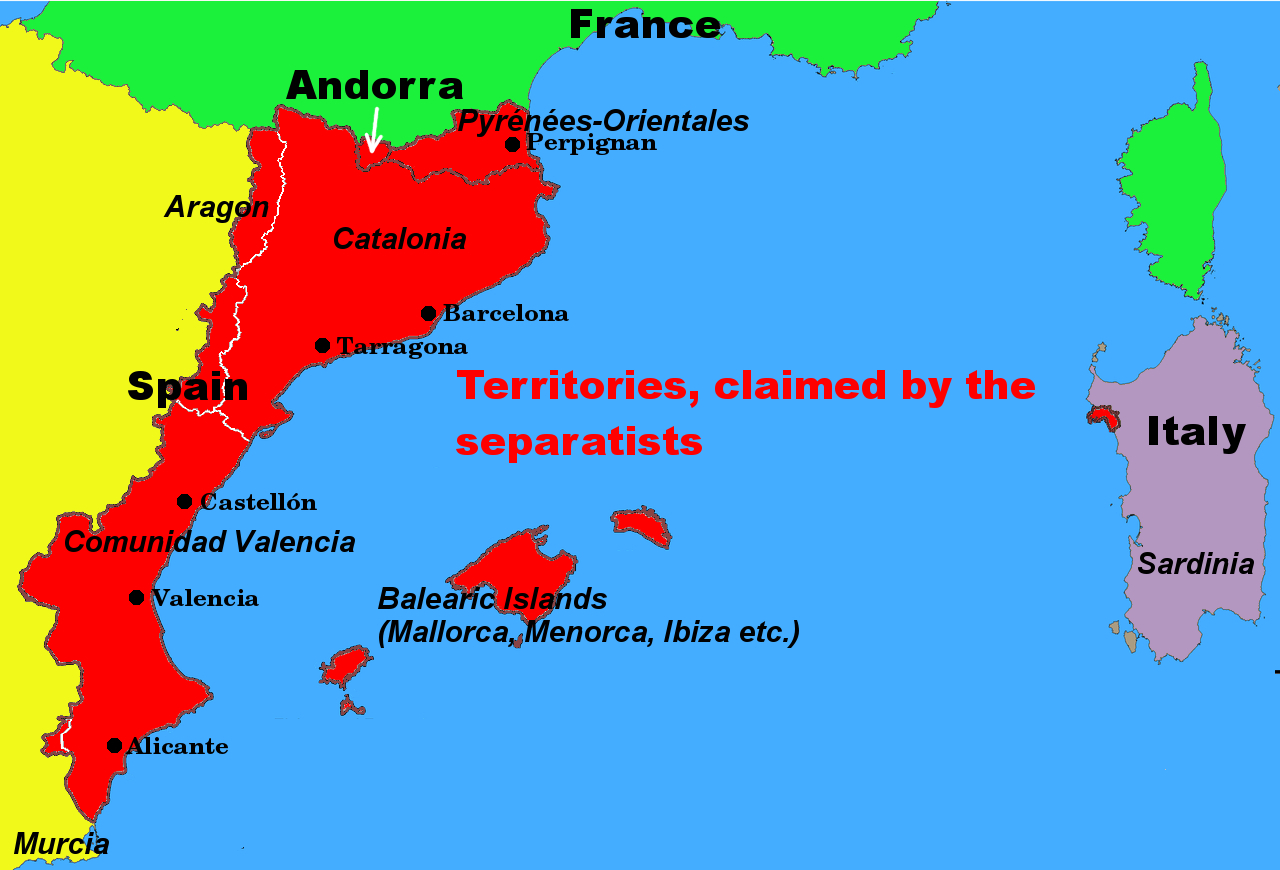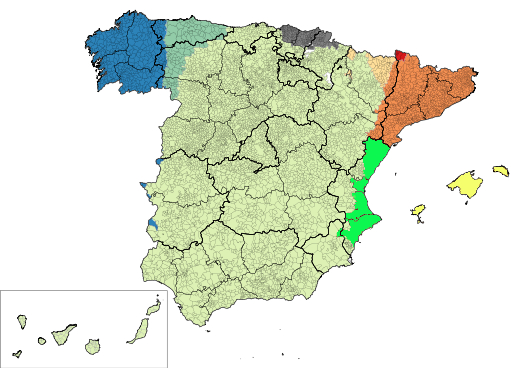Between the elections
What's next for the language imposition?
July 1, 2023
I know some, whether Spanish or EU citizens, who voted for VOX in the local and regional elections on May 28, 2023 because they want to send their children to school again without language imposition and without extreme sex education. Others were more concerned with the social issues associated with a vote against the expected PP-VOX coalition.
Prime Minister Pedro Sánchez, after the huge losses in these elections, has set a national parliamentary election (in which EU citizens are not eligible to vote) for July 23. Thus, Spain is in a phase in which all parties, on the one hand, still have to uphold the election promises, and on the other hand, should already take decisions in the regional governments and town halls.
On this blog I focus on language policy and so, among other things, politics and the media in recent days, too:
El Mundo headlines on June 28: „Immersion hampers the performance of Catalan students and places them at the bottom of the Spanish ranking“
(meaning of immersion here: teaching only in Catalan).
and on the same day:
„The three dilemmas of the PP in its bilingual autonomous regions: How will it defend Spanish?“
Then, on June 29, it's: ' href='https://www.elmundo.es/espana/2023/06/29/649dcfdb21efa07f568b45ac.html'>„The PP puts an end to the marginalization of Spanish in the Balearic Islands and Valencia: 'It is not an attack, we are expanding rights'.“
The monarchist ABC on June 30: „PP-Vox pact against linguistic nationalism is more demanding in the Valencian Community than in the Balearic Islands“
elCatalan.es accuses the Catalan PSOE variant on June 30: „The PSC joins the separatists to continue to breach the 25% of Spanish in Catalan classrooms“
Meanwhile, the difficulties for Spanish speakers in the autonomous regions continue: „I will not be able to study Medicine because of the Valenciano exam.“ is the word from Alicante, a city in the autonomous region of Valencia.
In my opinion, the PP-VOX coalitions have not yet made any clear commitments against language imposition. Especially not for the freedom of choice for the language of instruction in schools, which would probably be most important.
Meanwhile, the organization „Hablamos Español“ is trying to get the cities of Spain to use their Spanish names again. An, in my opinion, important side blow against all attempts of the PP to evade the obligation of linguistic equality. After all, the president of the Spanish PP, Alberto Núñez, is president of Galicia and its capital La Coruña, a name you won't encounter on any road sign in Galicia. The Galician administration, led by the right-wing PP, seems to be in a competition with the Catalan administration, led by so-called left-wing forces, when it comes to the intensity of language imposition.
Skepticism and vigilance therefore remain in order.
As a Catalan friend commented warningly and so aptly? „The Spanish and regional nationalists need each other!“
| | | | Click here to subscribe or cancel your subscription |
Myths and deceptions of Catalan nationalism

Here you'll find the translation
Languages in Spain
Spanish, Basque, Catalan, Mallorquin, Valenciano etc.
The strategy of recatalanization
 1980 the Spanish journal "El Periodico" published a secret document about the strategy of the Catalan government. It shows in a frightening way the actual spiritual world of the separatist leaders.
1980 the Spanish journal "El Periodico" published a secret document about the strategy of the Catalan government. It shows in a frightening way the actual spiritual world of the separatist leaders.Now it is available in english translation.
Pancatalanism
the separatist's imperial claim
 The Catalan government exports the conflict into communities with Catalan population, supporting all efforts of the separatists including financial means to destroy Spain.
The Catalan government exports the conflict into communities with Catalan population, supporting all efforts of the separatists including financial means to destroy Spain. An important tool is the establishment of a language dictatorship that is not afraid to use the same means as Franco.
Separatist indoctrination

Click here to read the study
Language imposition and democracy

An essay in 6 parts on the potentially violent effect of language imposition containing contributions from South Africa, Catalonia, Ukraine and France.
go to part 1 SticSti
Publications
 The title says: "Catalonia, a conflict is exported. Insights of a migrant"
The title says: "Catalonia, a conflict is exported. Insights of a migrant"Sorry, up to now, this book is only available in German. However, drop us a line, if you are interested to learn more Contact.

